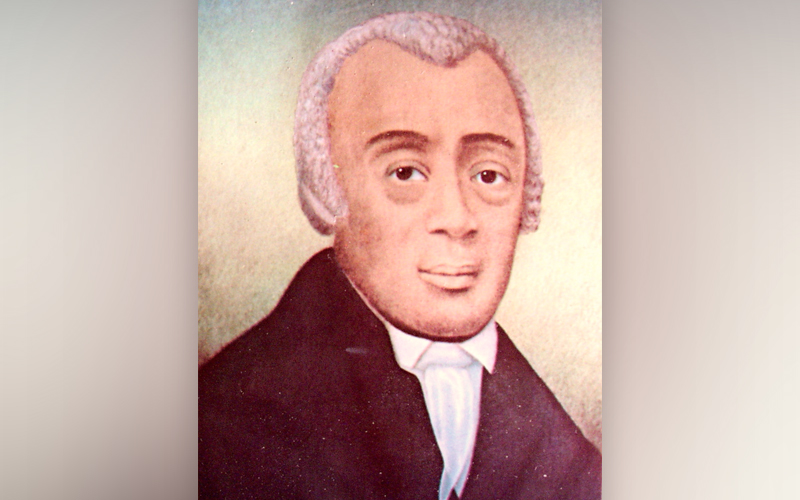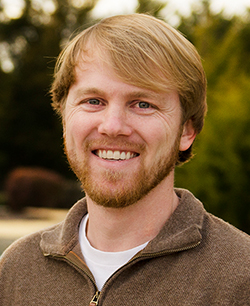We all face challenges in life. But there are some who face more obstacles than it seems possible to overcome. One such man was born into slavery; helplessly stood by as his father, mother, and three siblings were sold to another plantation, and survived an outbreak of yellow fever. But his faith was persistent, consistent and unshakable. His desire to spread the gospel was not hindered by racism, sickness, or injury. Through all the obstacles he faced, he said, “The Lord was pleased to strengthen us, and remove all fear from us, and disposed our hearts to be as useful as possible.”
Slavery to freedom
Richard Allen, known as “Negro Richard” before buying his freedom, was born a slave in Philadelphia in 1760. While still a teenager, he was sold to Stokeley Sturgis, a farmer in Delaware. At the age of 17, the gospel came alive to Richard while listening to a traveling Methodist preacher speak against slavery. Richard began preaching on his plantation and at many local Methodist churches. His call to be a preacher was so evident that Richard said, "Sometimes, I would awake from my sleep preaching and praying." Sturgis was so captivated with Richard's devout lifestyle that he permitted the young Allen to conduct services in the Sturgis home. In fact, Sturgis himself was converted during one of Allen’s services. Not long after Sturgis was converted, he made it possible for Richard to purchase his freedom for $2,000. After attaining his freedom, Richard claimed a new identity. Leaving behind his slave moniker of Negro, Richard took the last name Allen and returned to Philadelphia. There, he worked odd jobs, trying his hand as a shoemaker and even managing a chimney-sweeping company.
Freedom to ministry
Allen was so passionate about the gospel and his call to preach that he used every opportunity to spread the gospel to both whites and blacks. Allen traveled preaching throughout eastern Pennsylvania and adjacent states. He became an activist whose writings inspired Frederick Douglass and Martin Luther King Jr.
My favorite part about Allen is that he ministered not only to the spiritual needs of his fellow man but to their physical needs as well. For example, when the yellow-fever epidemic spread through Philadelphia in 1793 (killing over 4,000 of the 40,000 inhabitants), nearly all medical doctors fled the city to save their own lives. But they consented, partly from compassion and partly to show the white community, in one more way, the moral and spiritual equality of blacks. Allen and his associate Absalom Jones endured. They saw the obvious racism in the situation. Another who remained with Allen was Dr. Benjamin Rush (signer of the Declaration of Independence). Allen worked side by side as a medic with Dr. Rush, despite the danger, and helped countless victims in whatever way he could.
In 1794, the year following the epidemic, Allen wrote A Narrative of the Proceedings of the Black People During the Late Awful Calamity in Philadelphia.
Allen preached for others to help in whatever way possible. He once charged his audience:
Consider, my brethren, that all we have and are is entrusted to us by Almighty God. . . . and to Him we must give an account at the great day of reckoning. . . . Our blessed Lord has not committed His goods to us as a dead stock, to be hoarded up, or to lie unprofitably in our own hands. He expects that we shall put them out to proper and beneficial uses, and raise them to an advanced value by doing good with them as often as we have opportunity.
Allen's faith shone through in all of his accomplishments, and he openly proclaimed his gratefulness to God:
I believe it is my greatest honor and happiness to be Thy disciple; how miserable and blind are those that live without God in the world, who despise the light of Thy holy faith. Make me to part with all the enjoyments of life; nay, even life itself, rather than forfeit this jewel of great price.
Allen's humanitarian service ranks with the most heroic deeds of America's history.
Ministry to legacy
Allen began to preach regularly at the St. George Methodist Church in Philadelphia. There, he became an assistant minister and conducted prayer meetings for blacks. As the number of African Americans attending St. George’s increased, racial tensions grew. Allen preached at 5:00 AM to approximately 50 African American Methodists in special services on Sundays.
By 1786, blacks made up about 10% of the Methodist church in the United States, and though whites and blacks often worshiped together, blacks enjoyed no real freedom or equality. Segregated seating was typical. The area reserved for blacks was usually called the "Negro Pew" or the "African Corner.” Nonetheless, Allen had no desire to leave Methodism or the local conference. "I was confident," he later wrote, "that no religious sect or denomination would suit the capacity of the colored people as well as the Methodist; for the plain and simple gospel suits best for any people."
Time and disappointment would wear away at Allen’s loyalty, though. Frustrated with the limitations the church placed on him and other black people attending worship, in 1787 Allen did leave the church with the intention of creating an independent Methodist church.
The same year he left the Methodist church, Allen and his associate Reverend Absalom Jones, helped found the Free African Society. This was a non-denominational mutual aid society dedicated to helping the black community. In 1794, Allen and ten other black Methodists founded Bethel Church, a black Episcopal meeting in an old blacksmith’s shop. The old shop was sufficient for these Christians to meet for worship, even though it did not have the amenities many churches had at the time. In 1799, Allen became the first African American to be ordained in the ministry of the Methodist Episcopal Church. Bethel Church became known as "Mother Bethel" because it birthed the African Methodist Episcopal Church (1816). Helped by his wife Sarah, Allen helped hide escaped slaves. The basement of the Bethel Church was a stop on the Underground Railroad for blacks fleeing slavery.
Allen oversaw the fast growth of the AME's mother church, which grew to 7,500 members in the 1820s. The denomination became, by all accounts, the most significant black institution in the 19th century, and today has over 6,000 churches with more than 2.5 million members.
When Allen died at his home on March 26, 1831, it was said that the crowd gathering to honor him, "exceeded anything of the kind ever before witnessed in the country." Richard Allen was described as, "a man of deep piety, the strictest integrity, and indomitable perseverance; and his moral influence was unbounded." The way Allen lived his life from the moment of salvation was much like the ethos of Matthew 5:16, “In the same way, let your light shine before others, so that they may see your good works and give glory to your Father who is in heaven. His freedom to preach the gospel on the plantation, given him by owner, ultimately led to his owner’s salvation. As part of Allen’s lasting legacy, the AME church is still vibrant and continues to support many missions overseas.
One humbling area of Allen’s life and something all Christians can learn from is Allen’s passion to minister not only to the spiritual needs of his fellow man but to their physical needs as well. Allen’s exercise of Matthew 22:37-40 is as good as any hero I have read about. Also, his passion for sharing and living the good news of Jesus can inspire us all to keep our eyes and hearts open to those Jesus puts in our paths. When God gives believers the command to serve, He did give exemptions. He did not say we are to serve unless the people are serving are ungrateful. We are called to serve even those who hate us. Richard Allen did much more than serve. He loved.






